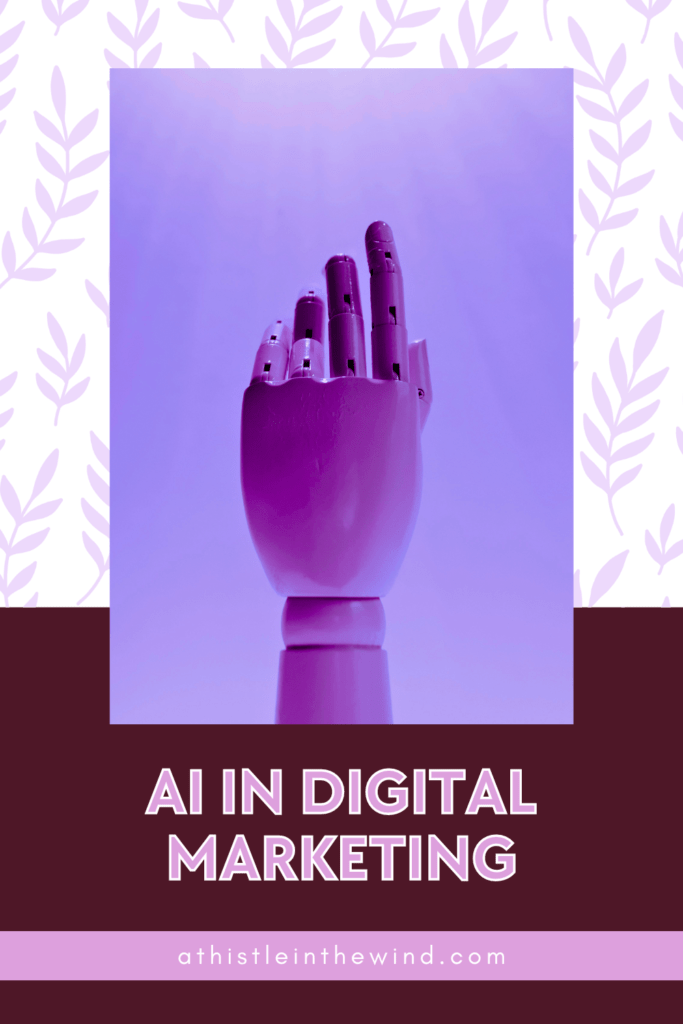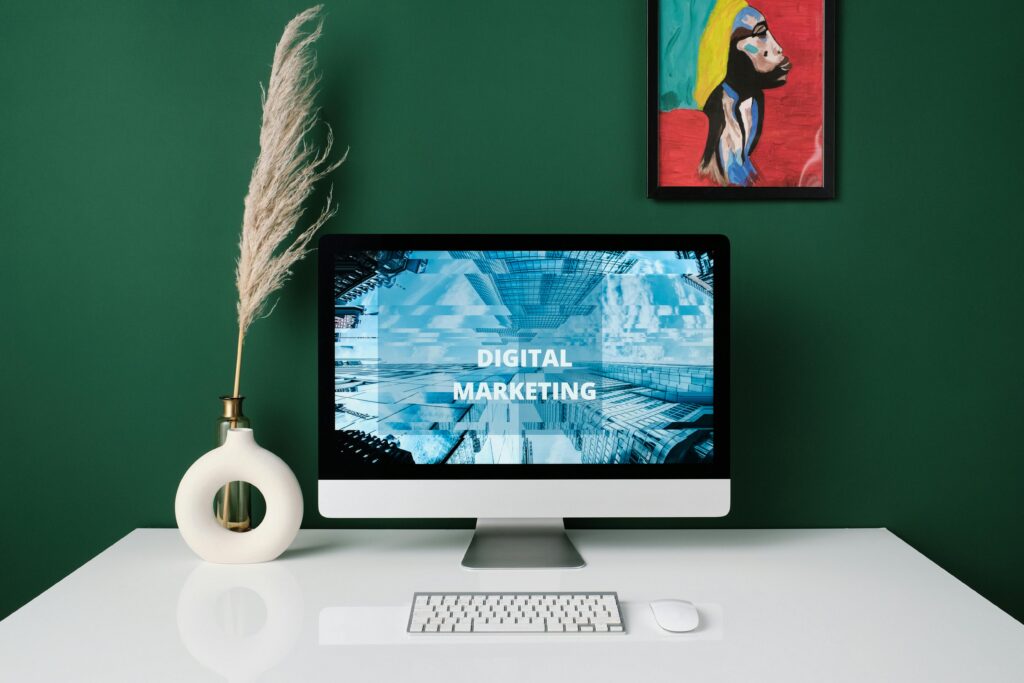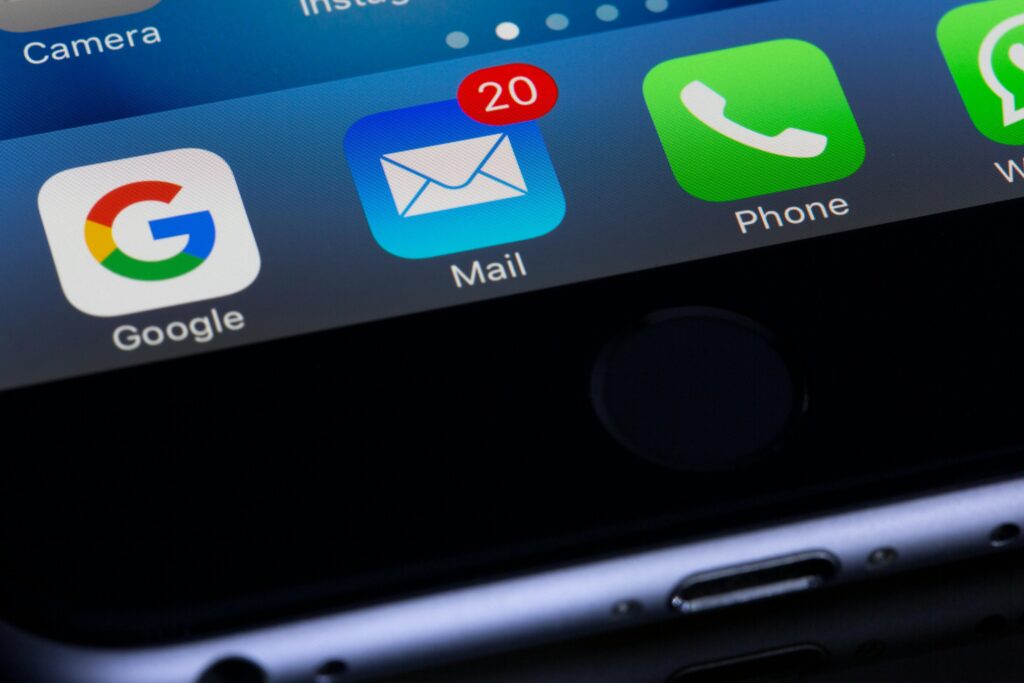AI in Digital Marketing: Is it Really Changing the Game?

Unless you’ve been living under a rock, there’s a 100% chance that you already know quite a bit about the use of AI in digital marketing. After all, just by browsing through social media, you’ll find way too many tips from “faceless” Instagram and TikTok accounts on the merits of marketing via AI. Some say you can earn four figures each month. Others swear by escaping the monotony of the 9-to-5.
While it’s easy to get caught up in both sides of the argument — some say that AI is your “one-stop” digital marketing solution while others have deemed it to be complete garbage — it’s important to remember that, in marketing, new tools have the ability to revolutionise industry standards.
I’d say that the digital marketing industry is usually among the first to try something new. Since its inception in the late 90s and the early 2000s, the industry was already looking into online content creation, email marketing and so on. Because of the nature of the industry, and the consistent demand for marketers to “make it go viral,” I’d go as far as to say that the mantra of “move fast and break things” truly applies to the marketing space.
After all, it’s really because of the efforts of marketers that we have the current SEO best practises. In fact, I’d go as far as to say that if it was because of the industry’s shenanigans to appear first on the new search engines that we even got SEO to begin with.
Understanding the Hype Around AI in Digital Marketing

Now, let’s be real for a moment. Digital marketing is important for the success of any business. Even if you have the best product in the world, if no one hears about it, no one’s going to buy it. And it isn’t the most technical of all skills. In theory, anyone can do digital marketing. There are plenty of really good sources online that can help you get started. But what makes good marketers stand out from amateurs is their ability to see what a particular product or service can do, and how to get people excited about it.
There’s actually more to it but that’s basically the gist of it. Unfortunately, since it sounds easy, people have the tendency of underestimating just how much work and strategy goes into marketing. And that’s where the sudden boom of the use of AI in marketing comes in.
I’ve already talked about this in my post on AI writing tools. As much as I hate it, we live in a world where people want to cut costs as much as possible. Because of this, it’s very easy for those who have no understanding how marketing really works to undercut the efforts of marketers. Whether you’re an SEO specialist, copywriter, designer or even the marketing manager at a company, you’ll know how easily your efforts can be swept under the rug for a tool that will, in theory, take your job.
Why Marketers Like AI (and How Everyone Else Seems to Miss the Point)
I’ve been pretty critical about AI myself, as you can tell from my catalogue on AI. But, between all the negatives, I do also have tutorials on how you can use AI to get stuff done quicker. That’s how most marketers are using AI these days.
After all, there are so many things you have to get done and the bulk of it requires effective writing. Even if you’re the most creative person in the world, you will have off-days where you just can’t get the creative juices flowing. Unfortunately, you just can’t not do your job if you’re feeling like this.
And that’s where AI comes in. Artificial Intelligence has certainly helped a lot of us get started. Need a quick caption for a post? You can ask ChatGPT to create 10 different captions for you. You can even specify your audience and ask for hashtags. Trying to come up with a blog outline on a topic you don’t know much about? Ask Gemini to create an outline with sources so you can save a few hours and get started immediately.
AI, admittedly, has made the more tedious tasks quicker. And that’s why most marketing people like it. Hell, with ChatGPT-4o and Gemini Advanced, you can also prompt it to tell you about your target audience. You can even create basic marketing strategies which you can then go deeper into. It’s saving time. But because most people think that marketing consists of social media posts and blogs and some SEO keywords splattered into the mix, it’s easy for everyone to think that AI can become your marketing team.
The truth is, there’s always a hundred things you could be doing to improve your marketing efforts. AI just helps you do a few more tasks than you would’ve done.
The Role of AI in Digital Marketing

With that being said, if you’re one of those people who’re genuinely interested in learning how AI is really affecting, here’s what you need to know about how it’s being used across the industry right now.
1. Better Content Marketing
There’s an old saying called content is king. This is especially true in the world of digital marketing. Everything online, whether it’s a video, an image, or a blog post, it’s all the result of copious hours of planning, creating content and revising that content until you finally create a copy that has the correct messaging.
AI has helped reduce the hours spent on this. It’s especially useful for monotonous things like meta titles, descriptions and alt text, all of which is very important for SEO but which ends up eating away tens and hundreds of hours.
Instead of spending time coming up with written material, we can spend more time on designs and creativity now. And no, Sora isn’t that helpful but it’s a good starting point.
2. More Personalised Ads
Ads are the backbone of any e-commerce platform. While you can totally depend on organic traffic to do the job, that typically takes a long time to amount to any real sales. That’s where ads come in. They drive traffic, lead to clicks and conversions. Unfortunately, we’re in an age of personalisation. Consumers aren’t dumb and a simple ad copy won’t convince them to buy your product.
You need to have ad copies that will attract their attention, and convince them that they really need your product.
To do this, you’ll need to break your audience into segments. How do you attract these people without spending a copious amount of money on a hundred (or thousand) different ad campaigns?
That’s kind of where AI comes in. You can use this tool to create personalised ads by analysing consumer behaviour and adding parameters to your ads. What do I mean by this?
Well, a rudimentary example of this would be a new clothing store in, let’s say, New York. That’s a very competitive city to begin with, and traditional advertising like billboards may not have the best ROI. So, you create ads and, based on the kind of clothes you sell, you can target a certain age bracket of the population. Now, you can’t advertise just a jacket or a dress to all of these people. Everyone has different tastes.
What you do instead is create a dynamic ad, that tracks the behaviour of your audience, and pre-select a bunch of designs that you think that different segments of your audience will like. You can’t possibly do this manually. Enter AI, based on information from past ads, user behaviour on your site and other information, it can show different clothes you sell to people who might be interested in it.
3. Email Marketing

Like the ads example, email marketing is also using AI for better conversions. In the past, we used to create templates for a general audience. We still do that, but we can add AI tools for more personalised messaging.
For this to work, it’s very important for you to be able to track every customer who comes to your site and interacts with it before signing up to your newsletter. Based on this information, you can start sending them more personalised emails that’ll pique their interest and lead to conversions.
An issue with email marketing is that people can often report your newsletters as spam, and that can hurt the reach of your campaigns and, in the long run, affect your domain authority. So, it’s very important that your emails are personalised enough to convince your audience to stay subscribed to your email list.
AI in digital marketing helps with that. I’ve used a lot of services that offer these specific personalisations to lead to better open rates, click-through-rates and most importantly, more conversions.
4. Automated Customer Service
AI-chatbots are annoying. But they’re actually really good for businesses. Especially if you’re a small business. I’ve often had to work with sales teams to identify customer needs and use their feedback for an improved product design. However, sometimes, due to the volume of it all, it’s very easy to ignore key feedback and bug reports.
That’s why AI chatbots are great. You can track real-time conversations with customers and not only improve your service based on that, but also report bugs and issues to relevant departments so that they can fix it ASAP.
5. Data Analysis and Interpretation

An issue that most data-driven marketing professionals will face, especially if there’s a massive volume of it (and it usually is), is properly analysing data. There are so many places where you get data from in marketing. Every campaign you run across different mediums, all of them end up shaping your marketing strategy.
But if you have hundreds of campaigns running, it’s really hard to determine what’s working, how it’s working and how you can optimise it. AI helps streamline this process. You can feed the data you’ve gotten and get definitive results. It saves time, and helps make decisions based on that.
Final Verdict: Is AI Really Changing the Game?
As you can see, there are multiple benefits to using AI in digital marketing. There are plenty of more points I could’ve mentioned but these are the ones that are most widely used and have the least amount of problems in implementation.
A common theme in all of these AI roles is that it saves time and streamlines processes that used to take hours. Based on this, I’d say that while it isn’t fundamentally changing the industry, it is creeping into it in places we already needed help in.
My thesis for the AI in marketing question is simple: it’s like how Microsoft Office (or whatever other tool was used back in the day) changed the game for businesses. You still need marketers for your marketing department because a successful campaign requires human oversight. AI is just a machine that uses algorithms to track past behaviours to make decisions. It’s not sentient and therefore, you can’t replace your marketing department with it. Let me know what you think!



One Comment
WS
I like this blog very much!